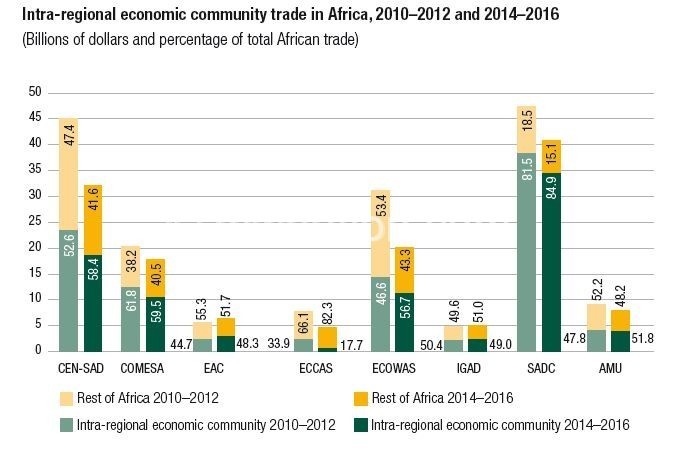MW among top African exporters
Malawi’s progress towards regional integration is yielding with the country ranked among top-ten lead intra-Africa exporters.
According to latest figures from the United Nations Commission for Trade and Development (Unctad) Economic Development in Africa Report, at 38.3 percent, Malawi is the 10th leading intra-Africa exporter with Zimbabwe, Uganda, Togo Senegal, Djibouti, Lesotho and Kenya having the larger share.

The 10 countries with the lowest share of exports, according to the report were Chad (0.2 per cent), Guinea (1.6 percent), Eritrea (2.3 percent), Equatorial Guinea (3.5 percent), Cabo Verde (3.6 per cent), Angola (3.9 percent), Libya (4.5 percent), Guinea Bissau (4.7 percent), Liberia (5.1) and Algeria (5.5 percent).
“The level of intra-regional economic community trade in Africa differs between communities, reflecting economic factors such as differences in stages of industrial and economic development and degrees of complementarity in production structures; differences in the state of political relations among member countries; and varying levels of political commitment towards the implementation of the agreements underpinning the regional economic communities.
“Progress towards the regional integration of Africa has been uneven to date, with some countries fairly well integrated at the regional and/or sub-regional level and others much less so,” reads the report in part,” reads the report in part.
There are eight regional economic communities in Africa, yet the share of intra-African trade remains low, at around 14.8 per cent in 2017, according to the report.
In 2016, intra-regional economic community trade was highest in Southern African Development Community (Sadc) at $34.7 billion, followed by Community of Sahelo-Saharan States (CEN–SAD) at $18.7 billion), Ecowas ($11.4 billion), Common Market for Eastern and Southern Africa (Comesa) at $10.7 billion.
Meanwhile, African leaders last week launched a continental free-trade zone on Sunday that if successful would unite 1.3 billion people, create a $3.4 trillion economic bloc and usher in a new era of development.
It is hoped that the African Continental Free Trade Area (AfCFTA)—the largest since the creation of the World Trade Organisation in 1994—will help unlock Africa’s long-stymied economic potential by boosting intra-regional trade, strengthening supply chains and spreading expertise.
Unctad secretary general Mukhisa Kituyi said in a statement accompanying the report that the transition phase to the Continental Free Trade Area alone could generate welfare gains of $16.1 billion and boost intra-African trade by 33 percent and boost African economies by harmonising trade liberalisation at the continental level, promote economic diversification and intra-African trade. n





